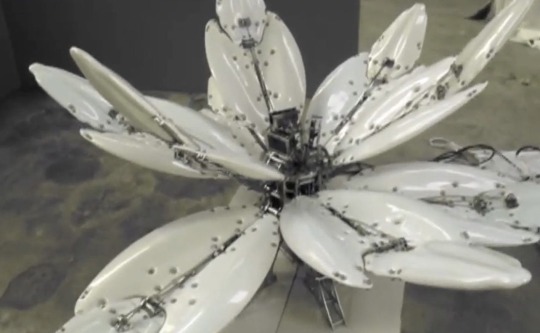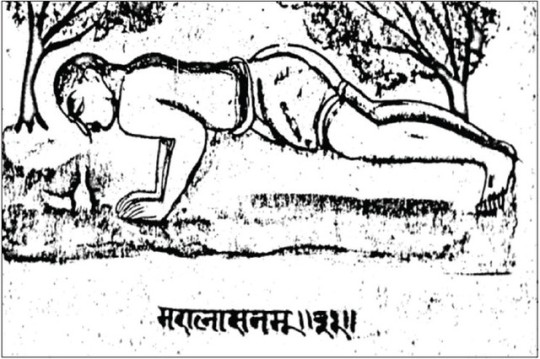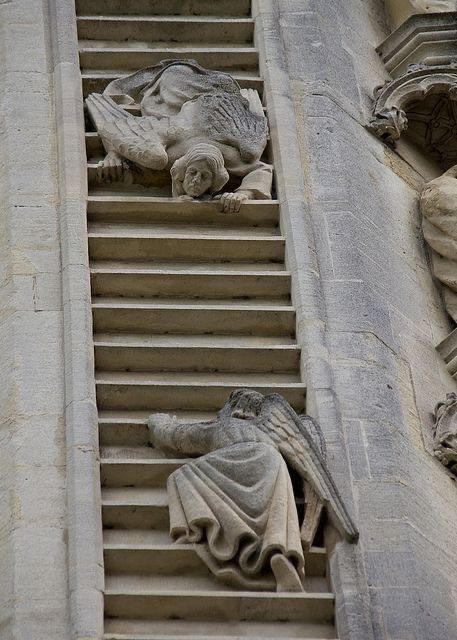Text
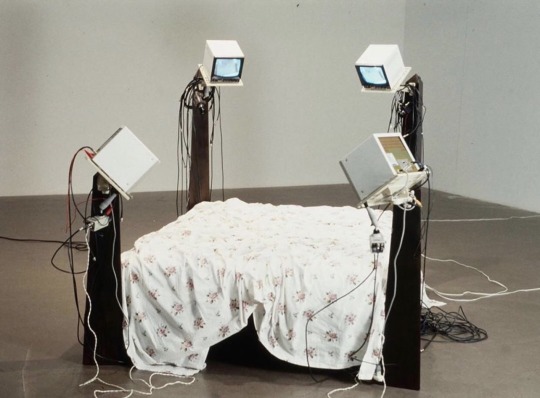
Julia Scher: Surveillance Bed III (1994)
12K notes
·
View notes
Text
0 notes
Text
"I would suggest that these speculative technologies might function as a critique of binary or digital systems, which function by dividing the world into quantifiable pieces. Zeno’s paradox of motion is therefore also the paradox of computation, that things exist beyond our delimitation of the world into phenomenologically knowable objects, and that while mathematics and by extension computation function despite these contradictions there nonetheless exists a Beyond that is illegible, or that we fail to recognize. In seeking alternatives to ways of knowing that are mediated by computing technology, it is my hope that we might identify an alternate logic of illegibility that might be opened up to produce a critique of new media objects. In choosing this, perhaps the earliest moment at which such an inquiry is made possible, it seems meaningful that such questions are being posed by two queer men who met only briefly and, perhaps appropriately, were unable to come to an agreement, or even understand the questions the other sought to answer. While it is no doubt true that queerness is not the only means by which we might ask these questions of technology, or through which we might seek an alternative to the universalizing structures of new media technologies, it is my suggestion that queerness is the ideal lens through which to examine a negativity that exists outside of or beyond – one that begins with two queer men in the earliest moments in the history of computation."
0 notes
Text
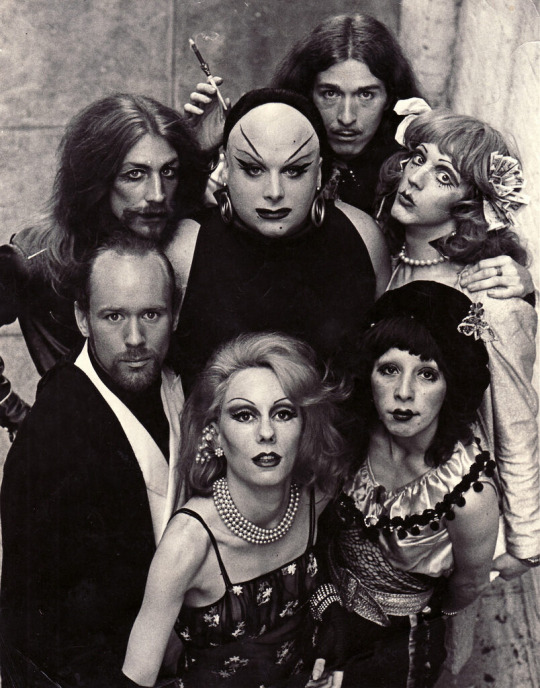
THE COCKETTES @ VICE PALACE [1972] ft. BILLY ORCHID, DIVINE, SCRUMBLY KOLDEWYN, PRISTINE CONDITION, PAM TENT, MINK STOLE, DAVID BAKER (JR.) | PHOTO: CLAY GERDES
1K notes
·
View notes
Text
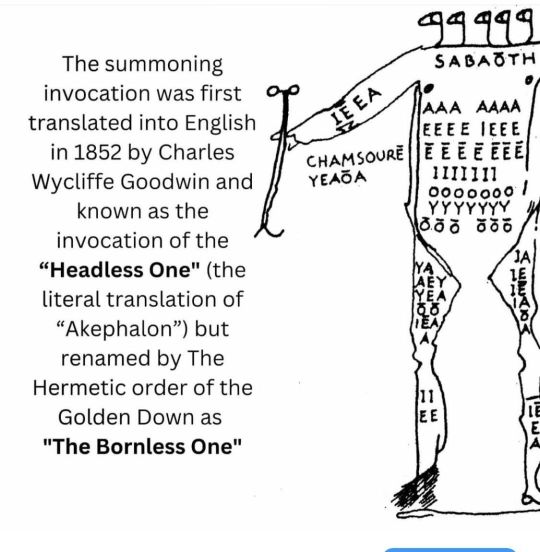
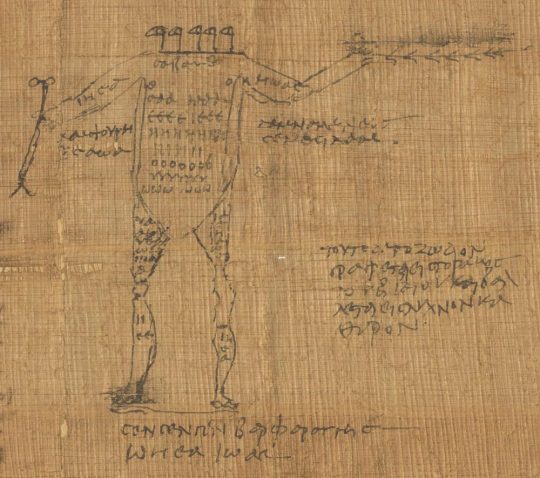
Akephalos: The Staggering Power of the Stele of Jeu or the Rite of the Headless One
The Bornless Ritual, also known as the Preliminary Invocation, is a ritual of Western ceremonial magic generally used as an Invocation of the Knowledge and Conversation of the Holy Guardian Angel, since it was introduced as such by the Hermetic Order of the Golden Dawn.
It was derived from the Greek Magical Papyri, specifically PGM V. 96-172: "Stele of Jeu the Hieroglyphist in his letter."
Here is an example stanza as translated by Hans Dieter Betz:
I summon you Headless One, who created earth and heaven, who created night and day. […] I am the Favor of the Aion; my name is a heart encircled by a serpent.
The Stele of Jeu, or the Rite of the Headless One, is documented within the Greek Magical Papyri, specifically Papyri Graecae Magicae V. 96-172. As highlighted by Rapposelli (2016), the Greek Magical Papyri comprise highly syncretic texts from Hellenistic Egypt, dating between the 2nd century BCE to the 5th century CE. They encompass Graeco-Egyptian magical spells imbued with elements from Egyptian, Greek, Gnostic, Orphic, and Hebrew traditions, sometimes all present within a single papyrus.
Traditionally, the Rite has been perceived as a potent exorcism ritual, with several references to subduing any daimons that might be negatively affecting one's life, for instance, invoking deliverance from "all restraining daimons and misfortune." The ritual goes beyond standard exorcism practices. Initially identifying with Moses and "the messenger of Pharaoh Osoronnophris," the Magician transcends earthly human identity, momentarily immersing into the Eternal and primordial as the Supreme "One, who created earth and heaven, who created night and day, who created the Light and the Darkness."
The Stele of Jeu is also interpretable through another lens—as a Theurgy rite and a mystical identification with the Godhead. As suggested, yogic teachers might liken it to a process of realising and abiding as Brahman, the ultimate reality manifesting as and transcending all things.
The Headless Rite is a complex Graeco-Egyptian hybrid of invocation and evocation conducted simultaneously. As elucidated by Isabella (2003), evoking a spirit means calling it to one's immediate vicinity, while invoking a spirit entails calling it into oneself. This Rite performs both actions simultaneously. Post-ritual, with the invoked power still resonating, it's customary to express a specific intent or prayer in the voice of the God, embodying a profound identification with the Godhead, leading to an intense, disorienting, transformative, and ineffable experience. This mystico-magical Apotheosis, as explained by Leonardo of Voces Magicae (2015), reaches a magical climax when the ritualist self-identifies with the invoked entity and speaks as that Deity.
This ritual apotheosis signifies the moment when the practitioner gains the requisite authority to manifest their desire, either summoning a spirit to appear or successfully casting a spell. This practice echoes Ancient Egyptian spells from the Pyramid Texts and Coffin Texts, wherein the priest assumes a god's identity, operating magically within the power of the assumed Divinity. It epitomises ancient magic with syncretic Hellenistic, Gnostic, and Jewish influences, embodying powerful magic.
The narrative recounts a particular experience with the Stele of Jeu version found in Dr. Maleficarus Strangefellow’s Prayer Book of the Order of Saint Cyprian of Antioch (OSC), Cyprian Orisons (2017). The experience described encapsulates a profound shift in consciousness and identity, resonating with primordial energies and transcending the earthly realm, embodying various divine and cosmic personas.
The ritual's culmination, as depicted, portrays a transcendental experience, transcending the boundaries of individual identity, connecting with the primal essence of existence, and embodying the universal truth. The experiential narrative underscores the power and mystique of the Stele of Jeu, manifesting a transformative bridge between the earthly and the divine, the mortal and the immortal, the manifest and the unmanifest.
69 notes
·
View notes
Text
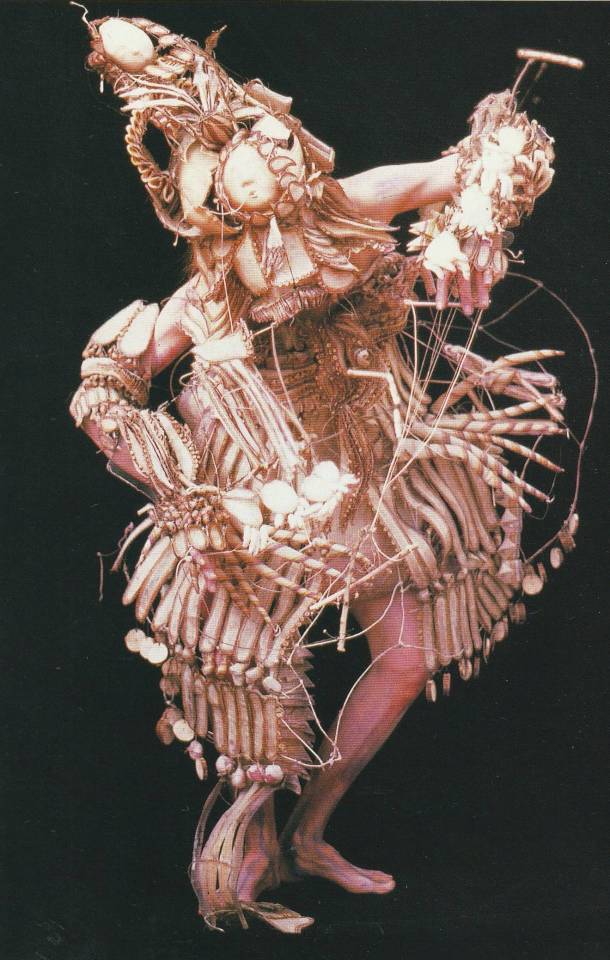
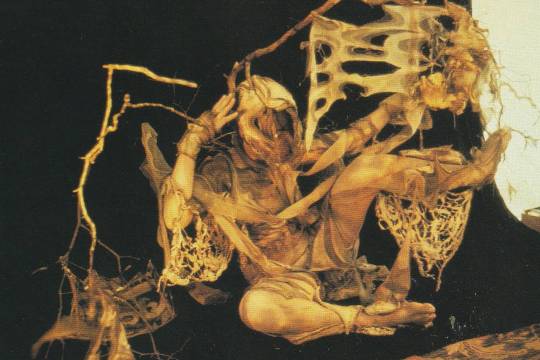
sha sha higby in the costume-maker's art: cloaks of fantasy, masks of revelation - thom boswell (1992)
5K notes
·
View notes






